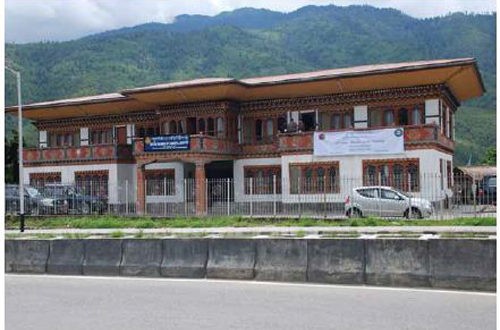The private sector would readily follow the RCSC’s Nu 10,000 per baby scheme if it is in a viable state. But when there is simply no money, there is no room for such incentives, says President
The Bhutan Chamber of Commerce and Industries (BCCI) President, Tandy Wangchuk said that the private sector is close to extinction as there is just no money. This speaks volumes about the state of Bhutan’s private sector, especially in construction. Non Performing Loan (NPL) issues, the cooling period and other policies have hit the construction industry the most. Thus, pay revision, baby bonus and other incentives cannot currently be carried out, though the Chamber supports it.
As the pay revision was deliberated, private sector employees say that the private sector should follow the government. BCCI’s President responded to queries and said that they would love “to provide private employees with the same benefits and allowances as the government’s pay revision for civil servants,” provided that they are given opportunities to grow. “Banking should be easily accessible, property should be revalued, and NPL issues should be lifted,” he added.
This also comes in the backdrop of the Royal Civil Service Commission (RCSC) beginning an allowance of Nu 10,000 for every child that a civil servant gives birth to. On November 11, 2022, coinciding with the birth anniversary of His Majesty the Fourth Druk Gyalpo, the program was implemented. With the intention of “helping the civil servants help themselves,” Civil servant’s welfare scheme (CSWS) was launched on November 15, 2015, allowing members to obtain financial assistance when they need it. The Nu 10,000 will be paid from the scheme.
A vibrant private sector can easily afford the Nu 10,000, bonus when an employee delivers. “We could even give more,” a member from the construction association of Bhutan (CAB) said. “But, we have to solve these irrational rules, which is making us poorer by the day,” he said.
The private sector knows about the benefits of such issues. “This is also how you retain your employees,” one entrepreneur said, adding that private sectors would pay if they are in a healthy state. “But see where the pandemic and the rules imposed have brought us to,” he said, adding that what the BCCI President said is right. “We are definitely on the verge of extinction from business.”
Others question the cooling period. “When somebody’s capacity to work and pay off debts are blocked, how can loans be repaid; there is no rationale of this requirement,” a businessman said. BCCI President added that the” private sector is currently in a situation where it is close to extinction.”
“At the moment, unless the banking facilities are on track, we won’t be able to do anything. We are currently dealing with serious NPL issues. For the employee to get more, the employer should be doing well in business, but many have entered into NPL due to the pandemic. To improve the situation and start new, they have to avail loan, but due to NPL issue, loan moratorium, no deferment they don’t get loan easily from the banks,” he said, adding that due to these issues, they won’t be able to say anything regarding pay revision and other incentives.
“The debate is on whether and when the economy or the state of the private sector will improve and be in a position to pay well and offer enticing bonuses and allowances, which can happen once the economy has recovered,” said BCCI president Tandy Wangchuk, reiterating that the private sector’s problems should be considered.
Meanwhile, the RCSC’s bonus is attributed by some as a strategy to increase the country’s population. In 2022, Bhutan’s birth rate is 16.118 per 1000 people, a 2.08% decrease from 2021. Bhutan’s birth rate fell by 2.05% from 2020 to 2021, reaching 16.461 births per 1000 people.
Furthermore, during the question and answer session in the National Assembly on November 25, 2022, National Assembly member from Mongar constituency, Karma Lhamo questioned the health minister on steps to boost the nation’s falling growth rate, citing the example of RCSC’s initiative to give Nu 10,000 to their employee at the time of birth of their children.
“Is there any similar scheme for others, including the private sectors,” she questioned.
The Replacement Level fertility requires an average of 2.1 children per woman, however Bhutan’s population replacement is only 1.8%, which is low in comparison.
Meanwhile, Health minister, Lyonpo Dechen Wangmo said that these policies are not from the health sector. However, Lyonpo said that on their part, there are many things initiated or in the pipe line to increase the growth rate.
“We have introduced Intra-Uterine Insemination (IUI) here at JDWNRH and In vitro fertilization (IVF) is going to be initiated in the Multi-Disciplinary Super-specialty Hospital soon, “said Lyonpo, adding that these facilities will help the people.
Meanwhile IUI is a fertility treatment that involves directly inserting sperm into a woman’s womb. And IVF is a medical procedure whereby an egg is fertilized by sperm in a test tube or elsewhere outside the body.
Tshering Pelden from Thimphu












